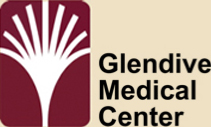Breastfeeding Information
Contact Us
Phone: 406-345-3306Email: jbeacom@gmc.org
GMC's Certified Lactation Counselors:

Staci Kadrmas, RN, CLC

Jessica Beacom, RD, CLC
For more information about the benefits of breastfeeding, visit The National Women's Health Information Center at www.4woman.gov/Breastfeeding.
View additional breastfeeding infomation at a Leche League International www.llli.org.
Breastfeeding Reduces Risk of Breast Cancer
As the country addresses breast cancer awareness, one protective factor often goes unmentioned: the reduction in the risk of breast cancer shown in women who have breastfed their infants. Many Americans hear that breast cancer is the second most frequently diagnosed and second most deadly cancer among women. Similarly, when discussing breast self-exams with their patients, many physicians quote the statistic that one out of every eight women will get breast cancer in her lifetime. Yet many still do not realize that multiple studies have shown that breastfeeding reduces the risk of breast cancer, in addition to lifestyle changes such as exercising, eating a healthy diet, limiting alcohol intake, and avoiding smoking.United States Breastfeeding Committee (USBC) Chair, Joan Younger Meek, MD, MS, RD, FAAP, FABM, IBCLC, affirms that research has demonstrated that breastfeeding protects mothers from both breast and ovarian cancers. In addition to the more familiar benefits enjoyed by breastfed infants (protection against illnesses such as ear infections, respiratory infections, and diarrhea) these children also are more likely to avoid obesity, diabetes, and childhood leukemia.
Studies also have reported a decreased risk of breast cancer in women with lifetime breastfeeding duration of more than 12 months. "Breastfeeding promotion efforts often focus on the benefits to the infant," says Dr. Meek, "but breastfeeding also provides a host of benefits to mothers. Increased initiation and longer duration of breastfeeding is a major cost-effective primary health prevention strategy to decrease the number of women in the U.S. who will be affected by breast cancer."
Given all of these benefits, the United States Breastfeeding Committee joins the Centers for Disease Control and Prevention, the Maternal and Child Health Bureau of the Health Resources and Services Administration, and the DHHS Office on Women's Health in recommending that infants be exclusively breastfed for six months. In addition, they encourage mothers to continue to breastfeed for the first year of life, and as long afterwards as mutually desired by mother and infant.
The USBC also urges all women to practice the elements of good breast health, including:
Obtaining regular mammography screening starting at the age of 40
Obtaining annual clinical breast exams
Performing monthly breast self-exams
Obtaining a risk assessment from a physician
For more information about National Breast Cancer Awareness Month, visit www.nbcam.org.
Breastfeeding Associated with Decreased Childhood Behavioral Problems
Children who are breastfed are less likely to suffer frombehavioral or mental health issues than those who are not breastfed, according to new research.
The study, which was presented at the American Public Health Association's 136th Annual Meeting and Exposition in San Diego, looked at whether breastfeeding is associated with decreased behavioral problems and psychiatric illness during childhood.
Using 2003 National Survey of Children's Health data from 102,353 interviews of parents and guardians on the health of their children, researchers found that parents of breastfed children were less likely to report concern for the child's behavior, and breastfed children were less likely to have been diagnosed by a health professional with behavioral or conduct problems and were less likely to have received mental health care. Additionally, parents of breastfed children were less likely to report concern about the child's ability to learn.
"These findings support current evidence that breastfeeding enhances childhood intellectual ability while providing new evidence that breastfeeding may contribute to childhood emotional development and protect against psychiatric illness and behavioral problems," said Katherine Hobbs Knutson, MD, lead researcher on the study.
Source: American Public Health Association (APHA)
Researchers: Katherine Hobbs Knutson, MD and Alexy Arauz Boudreau, MD, MPH.









